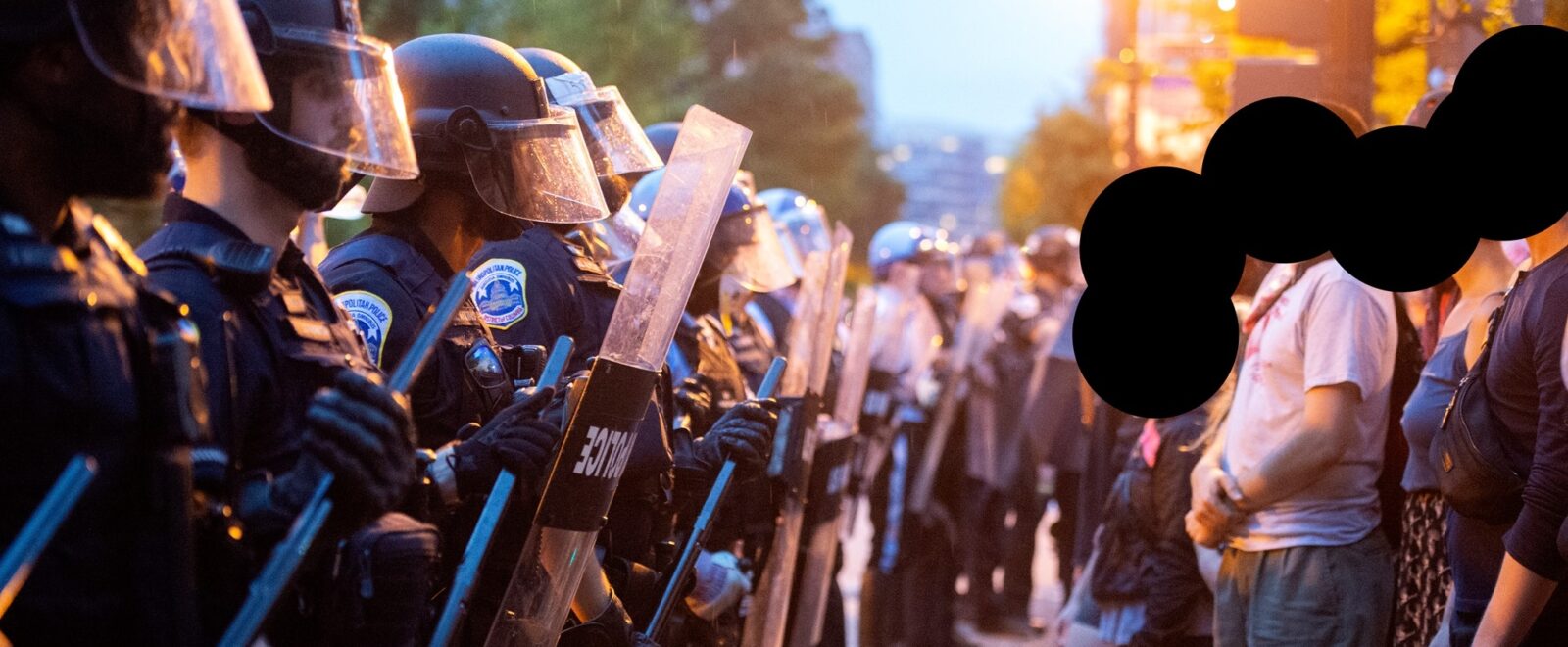American exceptionalism.
This idea that for some mysterious reason, Americans are better than the rest of the world – more morally upstanding, more inherently gifted, more patriotic, and so on. It’s an idea that many of us who grew up in the United States have had to un-learn. It has given the U.S. government political cover to exert dominance around the world, doing untold harm to people in the process. And it continues to be deeply ingrained in our national psyche.
One of the many ways in which everyday people in the U.S. are learning that we are, in fact, quite unexceptional is in the fragility of our democracy. Yes, U.S. democracy has functioned more or less as designed for a long time (including, of course, those design features that exclude certain types of people from full participation and power in our shared lives). But no – it is not infallible, and the last few years have shown just how precarious it really is, and how close to a collapse we might be.
As with most things, we’re not that different from others, it turns out. People all around the world are struggling with authoritarianism and ethno-nationalism. They’re struggling with politicians and systems of government that serve a small elite instead of everyday people, and with the reactionary movements that can so easily arise as a result (especially in the absence of a meaningful progressive alternative to the status quo). Just in the last few years, in places like Brazil, India, the UK, the Philippines, and so many more, we’ve seen new governments rise to power – and in some cases consolidate it – using divisive, sometimes openly fascist rhetoric.
The reasons for this trend of rising authoritarianism and repression of dissent are manifold, but these governments often rise to power in the first place because of the failure of the most basic democratic promise: that all people should have equal voice in choosing their leaders. As ActionAid says in a forthcoming report from our Working Group on Civic Participation and Democratic Space (with input from Bangladesh, Burundi, Ghana, The Gambia, Kenya, Malawi, Mozambique, Myanmar, Nepal, Nigeria, Sierra Leone, Uganda, Zambia, and Zimbabwe):
Electoral processes with widespread barriers to civil and political rights are becoming the norm in many countries. This has taken many forms, such as unlimited bans on protests against election results and economic and political models that maintain and deepen inequalities such as in Zimbabwe; internet and social media shutdowns during elections for instance in Uganda; media concentration in the hands of the elite to propagate conservative and pro status quo narratives over politics in Kenya; arbitrary detention and long prison terms after unfair trials of activists. All of this has happened in a context in which neoliberal economic systems, coupled with the consolidation of power by military and economic elites, including multinational corporations, have resulted in unacceptable levels of inequality.
Several countries are also witnessing democratic ‘backsliding’, where authoritarian leaders and elected despots increasingly seek to use or manipulate the law (rather than violate or ignore it) to pursue their ends within the boundaries of the constitution. This includes: extensions of constitutional term limits for political leaders such as Uganda in 2017; increased concentration of power in executive branches; curtailing the independence of the judiciary and the media; reducing legislative oversight; and tight control of democratic competition by passing legislation restricting constitutionally guaranteed rights, which is often targeted at reducing political opposition and dissent.
In the face of rising authoritarianism and repression of dissent, some of the recommendations from the forthcoming report are:
- ensure the ability of excluded and marginalized groups to vote;
- zero tolerance for election-related violence;
- prohibitions and sanctions on the spread of false and misleading information;
- an independent judiciary that above all else ensures the protection of fundamental rights especially for excluded and marginalized groups; and more.
Perhaps we’re accustomed to reading these sorts of things about other countries. But now, it’s happening right here at home, in the midst of one of the most consequential elections in our history. Instead of these things, we’re facing unprecedented voter suppression, the threat of vigilante violence, massive disinformation campaigns and the mainstreaming of conspiracy theories, and more. All this comes in the context of a long summer in which militarized police (including federal police) have been, with impunity, terrorizing and abducting people exercising their right to freedom of expression – and justifying that violence by characterizing all those people as “criminals” or “rioters” trying to destroy our society.
There is nothing inherently special or unique about our country that somehow guarantees that our democracy will survive the coming months. But it’s in our power to make it so. We can make it so by voting, ensuring that people in our communities can vote, and then doing everything we can to ensure that all those votes are counted. We can make it so by refusing to allow anyone who stands up for what’s right to be criminalized. And then, after we’ve preserved our democracy, we double down on the struggle for the rights and dignity of everyone, especially those whom that democracy has historically excluded and ignored.



